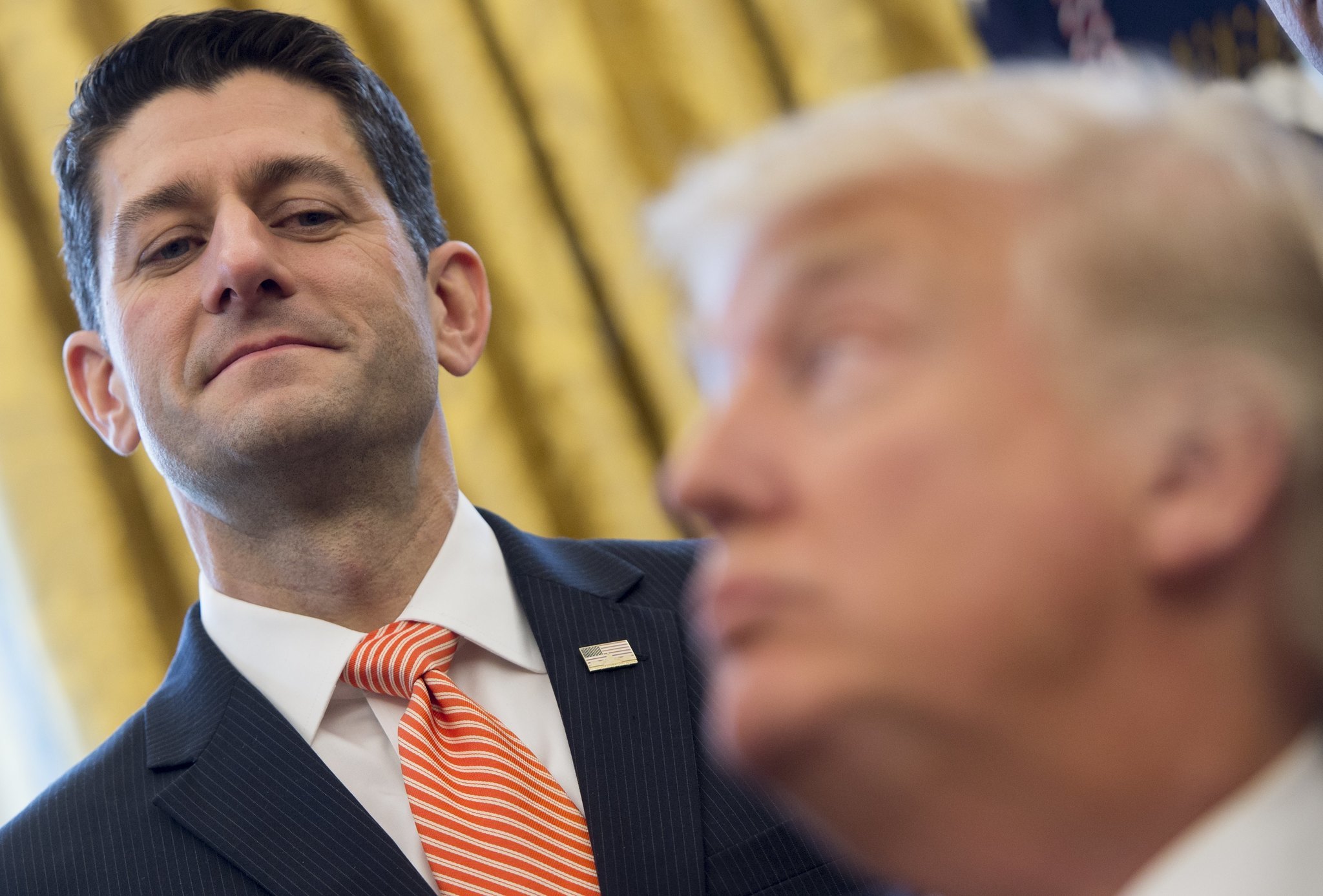House Republican leaders, facing a revolt among conservatives and moderates in their ranks, pulled legislation to repeal the Affordable Care Act from consideration on the House floor Friday [March 24, 2017] afternoon in a significant defeat for President Trump on the first legislative showdown of his presidency.
House Speaker Paul D. Ryan conceded, “We’re going to be living with Obamacare for the foreseeable future.”
The defeat of the Republicans’ three-month blitz to repeal President Barack Obama’s signature domestic achievement exposed deep divisions in the Republican Party that the election of a Republican president could not mask. It also cast a shadow over the ambitious agenda that Mr. Trump and Republican leaders had promised to enact once their party assumed power on both ends of Pennsylvania Avenue.
The drama of the day underscored the futility of the leaders’ efforts. Mr. Ryan rushed to the White House shortly after noon to tell Mr. Trump he did not have the votes for a repeal bill that had been promised for seven years — since the day Mr. Obama signed his landmark health care act into law.
Mr. Trump, in a telephone interview moments after the bill was pulled, blamed Democrats and predicted that they would seek a deal within a year, he asserted, after “Obamacare explodes” because of high premiums.
He also expressed weariness with the fight, which was a fraction of the length of time that Democrats devoted to enacting the Affordable Care Act.
“The best thing that could happen is exactly what happened — watch,” he said. “It’s enough already.”
But the effort to win passage had been relentless — and hardly hidden. Vice President Mike Pence and Tom Price, the health secretary, rushed to Capitol Hill for a late appeal to House conservatives, but their pleas fell on deaf ears.
And in private, Mr. Trump took a much harder line. The president was furious that members of the hard-line conservative Freedom Caucus had opposed the legislation. He demanded for much of Thursday that Mr. Ryan push a vote to publicly expose the members who were opposing the administration.
Mr. Trump and his top strategist, Stephen K. Bannon, wanted to see a confidential list of compiled to exact revenge on the bill’s Republican opponents, according to two people with direct knowledge of the situation
The critical moment — when the parties decided to withdraw the doomed measure — came during a 3 p.m. phone call with Mr. Ryan and the president, who was in the Oval Office. Mr. Ryan told Mr. Trump that scorched-earth strategy was misguided and self-destructive.
Mr. Ryan, according to staff members, agreed that members of the Freedom Caucus were not negotiating in good faith, but he said that punishing them would also harm members who were simply trying to protect themselves from potential conservative primary challenges next year.
The speaker sealed the deal by telling Mr. Trump a public vote would turn a bad defeat into a spectacular loss that could alienate conservatives whom he would need for upcoming votes to raise the debt ceiling, to pass a budget and to enact an ambitious rewrite of the tax code. Retribution could also jeopardize the $1 trillion infrastructure package championed by Mr. Bannon.
Mr. Trump, aides said, was still annoyed, but agreed.
“You can’t pretend and say this is a win for us,” said Representative Mark Walker, Republican of North Carolina, who conceded it was a “good moment” for Democrats.
Read the full report at The New York Time.







